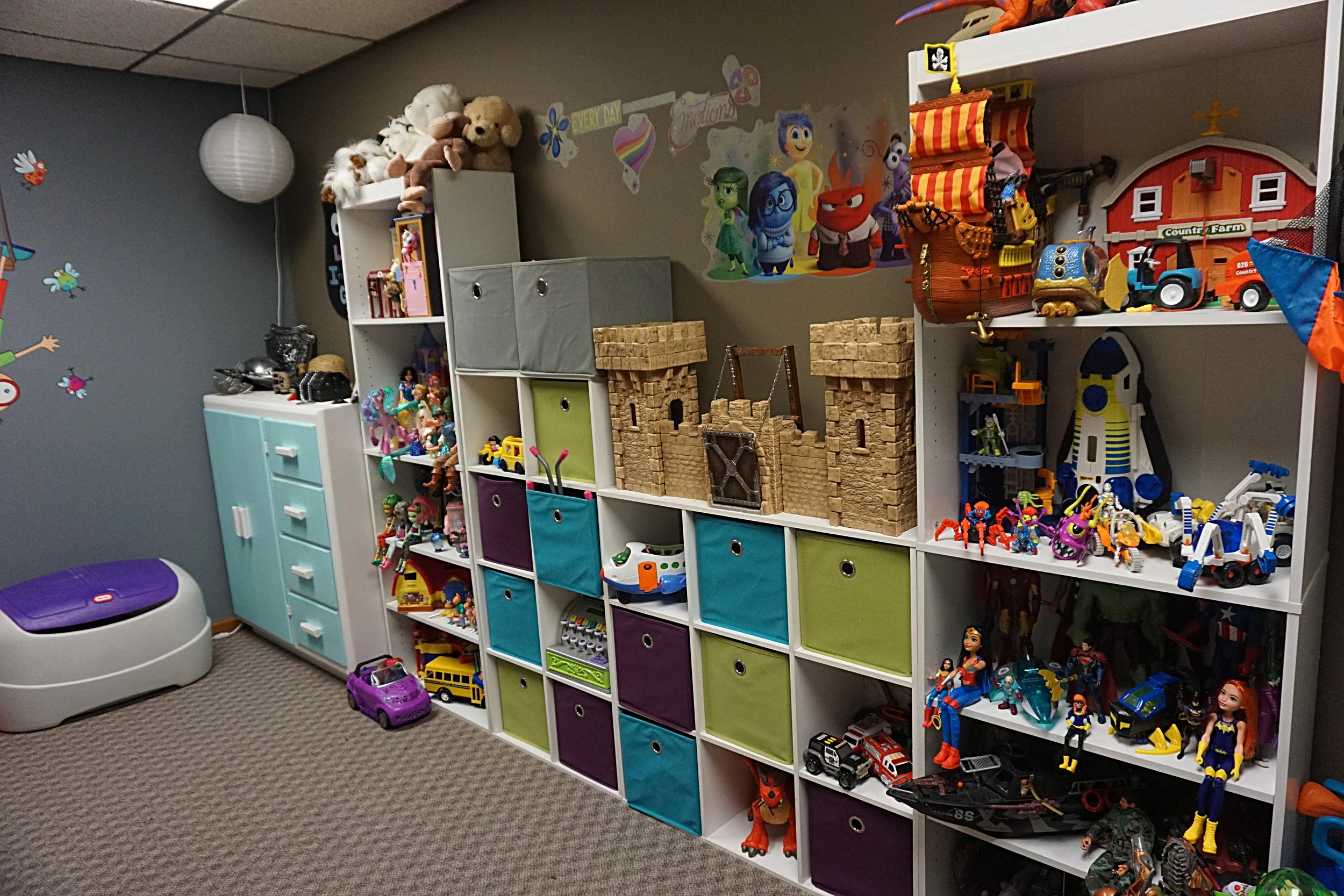What is Play Therapy?
Play Therapy is defined by Association of Play Therapy (APT) as “the systematic use of a theoretical model to establish an interpersonal process wherein trained Play Therapists use the therapeutic powers of play to help clients prevent or resolve psychosocial difficulties and achieve optimal growth and development."
“Toys are children’s words and play is their language”
Why Play?
Often, children have used up their own problem solving tools, and they misbehave, may act out at home, with friends, and at school (Landreth, 2002). Play therapy allows trained mental health practitioners who specialize in play therapy, to assess and understand children's play. Further, play therapy is utilized to help children cope with difficult emotions and find solutions to problems (Moustakas, 1997; Reddy, Files-Hall, & Schaefer, 2005). By confronting problems in the clinical Play Therapy setting, children find healthier solutions. Play therapy allows children to change the way they think about, feel toward, and resolve their concerns (Kaugars & Russ, 2001). Even the most troubling problems can be confronted in play therapy and lasting resolutions can be discovered, rehearsed, mastered and adapted into lifelong strategies (Russ, 2004).
“Play Therapy is based upon the fact that play is the child’s natural medium of self-expression. It is an opportunity which is given to the child to ‘play out’ his feelings and problems just as, in certain types of adult therapy, an individual ‘talks out’ his difficulties.”





